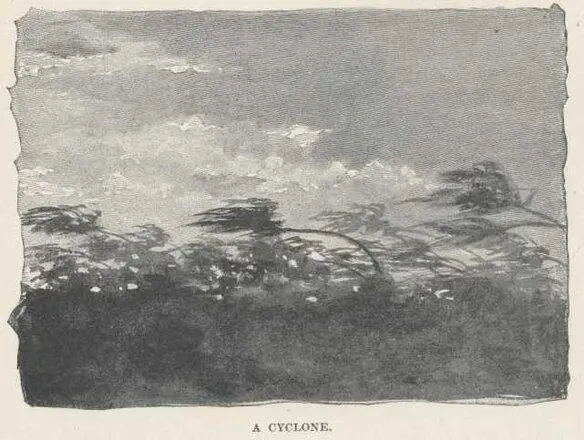Mark Twain - Following the Equator
Здесь есть возможность читать онлайн «Mark Twain - Following the Equator» весь текст электронной книги совершенно бесплатно (целиком полную версию без сокращений). В некоторых случаях можно слушать аудио, скачать через торрент в формате fb2 и присутствует краткое содержание. Год выпуска: 2004, Жанр: Классическая проза, Юмористическая проза, на английском языке. Описание произведения, (предисловие) а так же отзывы посетителей доступны на портале библиотеки ЛибКат.
- Название:Following the Equator
- Автор:
- Жанр:
- Год:2004
- ISBN:нет данных
- Рейтинг книги:3 / 5. Голосов: 1
-
Избранное:Добавить в избранное
- Отзывы:
-
Ваша оценка:
- 60
- 1
- 2
- 3
- 4
- 5
Following the Equator: краткое содержание, описание и аннотация
Предлагаем к чтению аннотацию, описание, краткое содержание или предисловие (зависит от того, что написал сам автор книги «Following the Equator»). Если вы не нашли необходимую информацию о книге — напишите в комментариях, мы постараемся отыскать её.
Following the Equator — читать онлайн бесплатно полную книгу (весь текст) целиком
Ниже представлен текст книги, разбитый по страницам. Система сохранения места последней прочитанной страницы, позволяет с удобством читать онлайн бесплатно книгу «Following the Equator», без необходимости каждый раз заново искать на чём Вы остановились. Поставьте закладку, и сможете в любой момент перейти на страницу, на которой закончили чтение.
Интервал:
Закладка:
Another dish, called palmiste, is like raw turnip-shavings and tastes like green almonds; is very delicate and good. Costs the life of a palm tree 12 to 20 years old—for it is the pith.
Another dish—looks like greens or a tangle of fine seaweed—is a preparation of the deadly nightshade. Good enough.
The monkeys live in the dense forests on the flanks of the toy mountains, and they flock down nights and raid the sugar-fields. Also on other estates they come down and destroy a sort of bean-crop—just for fun, apparently—tear off the pods and throw them down.
The cyclone of 1892 tore down two great blocks of stone buildings in the center of Port Louis—the chief architectural feature—and left the uncomely and apparently frail blocks standing. Everywhere in its track it annihilated houses, tore off roofs, destroyed trees and crops. The men were in the towns, the women and children at home in the country getting crippled, killed, frightened to insanity; and the rain deluging them, the wind howling, the thunder crashing, the lightning glaring. This for an hour or so. Then a lull and sunshine; many ventured out of safe shelter; then suddenly here it came again from the opposite point and renewed and completed the devastation. It is said the Chinese fed the sufferers for days on free rice.

Whole streets in Port Louis were laid flat—wrecked. During a minute and a half the wind blew 123 miles an hour; no official record made after that, when it may have reached 150. It cut down an obelisk. It carried an American ship into the woods after breaking the chains of two anchors. They now use four-two forward, two astern. Common report says it killed 1,200 in Port Louis alone, in half an hour. Then came the lull of the central calm—people did not know the barometer was still going down—then suddenly all perdition broke loose again while people were rushing around seeking friends and rescuing the wounded. The noise was comparable to nothing; there is nothing resembling it but thunder and cannon, and these are feeble in comparison.
What there is of Mauritius is beautiful. You have undulating wide expanses of sugar-cane—a fine, fresh green and very pleasant to the eye; and everywhere else you have a ragged luxuriance of tropic vegetation of vivid greens of varying shades, a wild tangle of underbrush, with graceful tall palms lifting their crippled plumes high above it; and you have stretches of shady dense forest with limpid streams frolicking through them, continually glimpsed and lost and glimpsed again in the pleasantest hide-and-seek fashion; and you have some tiny mountains, some quaint and picturesque groups of toy peaks, and a dainty little vest-pocket Matterhorn; and here and there and now and then a strip of sea with a white ruffle of surf breaks into the view.
That is Mauritius; and pretty enough. The details are few, the massed result is charming, but not imposing; not riotous, not exciting; it is a Sunday landscape. Perspective, and the enchantments wrought by distance, are wanting. There are no distances; there is no perspective, so to speak. Fifteen miles as the crow flies is the usual limit of vision. Mauritius is a garden and a park combined. It affects one's emotions as parks and gardens affect them. The surfaces of one's spiritual deeps are pleasantly played upon, the deeps themselves are not reached, not stirred. Spaciousness, remote altitudes, the sense of mystery which haunts apparently inaccessible mountain domes and summits reposing in the sky—these are the things which exalt the spirit and move it to see visions and dream dreams.
The Sandwich Islands remain my ideal of the perfect thing in the matter of tropical islands. I would add another story to Mauna Loa's 16,000 feet if I could, and make it particularly bold and steep and craggy and forbidding and snowy; and I would make the volcano spout its lava-floods out of its summit instead of its sides; but aside from these non-essentials I have no corrections to suggest. I hope these will be attended to; I do not wish to have to speak of it again.
CHAPTER LXIV.
When your watch gets out of order you have choice of two things to do: throw it in the fire or take it to the watch-tinker. The former is the quickest.
—Pudd'nhead Wilson's New Calendar.
The Steamer "Arundel Castle"—Poor Beds in Ships—The Beds in Noah's Ark—Getting a Rest in Europe—Ship in Sight—Mozambique Channel—The Engineer and the Band—Thackeray's "Madagascar"—Africanders Going Home—Singing on the After Deck—An Out-of-Place Story—Dynamite Explosion in Johannesburg—Entering Delagoa Bay—Ashore—A Hot Winter—Small Town—No Sights—No Carriages—Working Women—Barnum's Purchase of Shakespeare's Birthplace, Jumbo, and the Nelson Monument—Arrival at Durban
The Arundel Castle is the finest boat I have seen in these seas. She is thoroughly modern, and that statement covers a great deal of ground. She has the usual defect, the common defect, the universal defect, the defect that has never been missing from any ship that ever sailed—she has imperfect beds. Many ships have good beds, but no ship has very good ones. In the matter of beds all ships have been badly edited, ignorantly edited, from the beginning. The selection of the beds is given to some hearty, strong-backed, self-made man, when it ought to be given to a frail woman accustomed from girlhood to backaches and insomnia. Nothing is so rare, on either side of the ocean, as a perfect bed; nothing is so difficult to make. Some of the hotels on both sides provide it, but no ship ever does or ever did. In Noah's Ark the beds were simply scandalous. Noah set the fashion, and it will endure in one degree of modification or another till the next flood.
8 A.M. Passing Isle de Bourbon. Broken-up sky-line of volcanic mountains in the middle. Surely it would not cost much to repair them, and it seems inexcusable neglect to leave them as they are.
It seems stupid to send tired men to Europe to rest. It is no proper rest for the mind to clatter from town to town in the dust and cinders, and examine galleries and architecture, and be always meeting people and lunching and teaing and dining, and receiving worrying cables and letters. And a sea voyage on the Atlantic is of no use—voyage too short, sea too rough. The peaceful Indian and Pacific Oceans and the long stretches of time are the healing thing.

May 2, AM. A fair, great ship in sight, almost the first we have seen in these weeks of lonely voyaging. We are now in the Mozambique Channel, between Madagascar and South Africa, sailing straight west for Delagoa Bay.
Last night, the burly chief engineer, middle-aged, was standing telling a spirited seafaring tale, and had reached the most exciting place, where a man overboard was washing swiftly astern on the great seas, and uplifting despairing cries, everybody racing aft in a frenzy of excitement and fading hope, when the band, which had been silent a moment, began impressively its closing piece, the English national anthem. As simply as if he was unconscious of what he was doing, he stopped his story, uncovered, laid his laced cap against his breast, and slightly bent his grizzled head. The few bars finished, he put on his cap and took up his tale again, as naturally as if that interjection of music had been a part of it. There was something touching and fine about it, and it was moving to reflect that he was one of a myriad, scattered over every part of the globe, who by turn was doing as he was doing every hour of the twenty-four—those awake doing it while the others slept—those impressive bars forever floating up out of the various climes, never silent and never lacking reverent listeners.
Читать дальшеИнтервал:
Закладка:
Похожие книги на «Following the Equator»
Представляем Вашему вниманию похожие книги на «Following the Equator» списком для выбора. Мы отобрали схожую по названию и смыслу литературу в надежде предоставить читателям больше вариантов отыскать новые, интересные, ещё непрочитанные произведения.
Обсуждение, отзывы о книге «Following the Equator» и просто собственные мнения читателей. Оставьте ваши комментарии, напишите, что Вы думаете о произведении, его смысле или главных героях. Укажите что конкретно понравилось, а что нет, и почему Вы так считаете.











